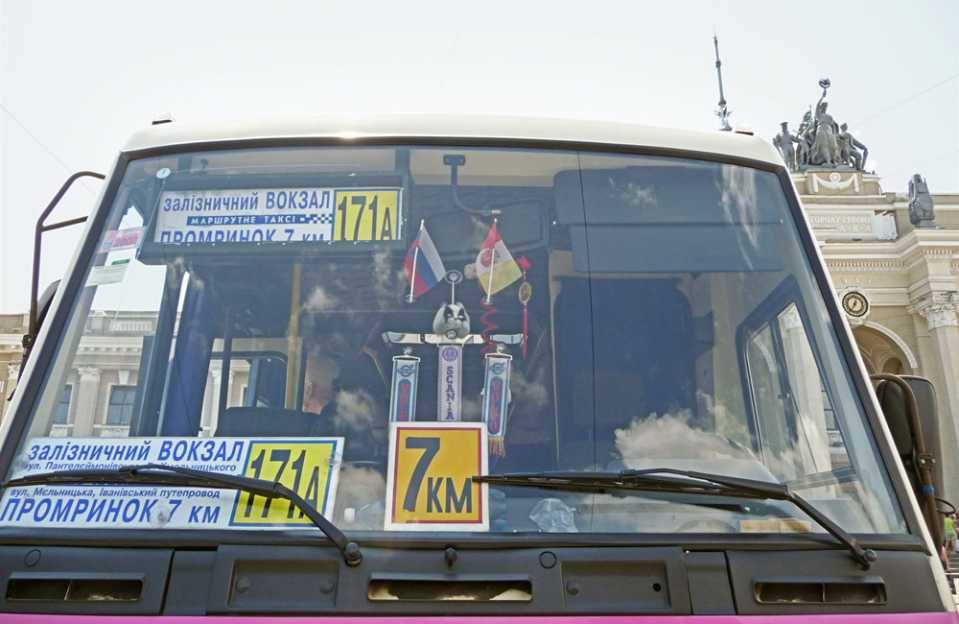
Former African students work as traders on the 7th Km Market.
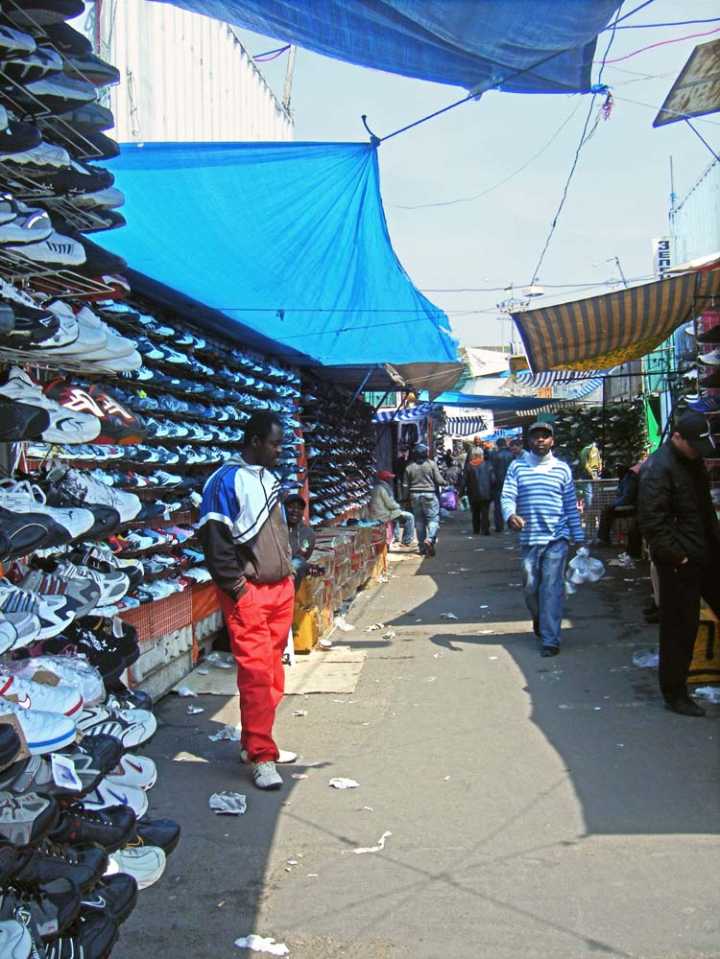
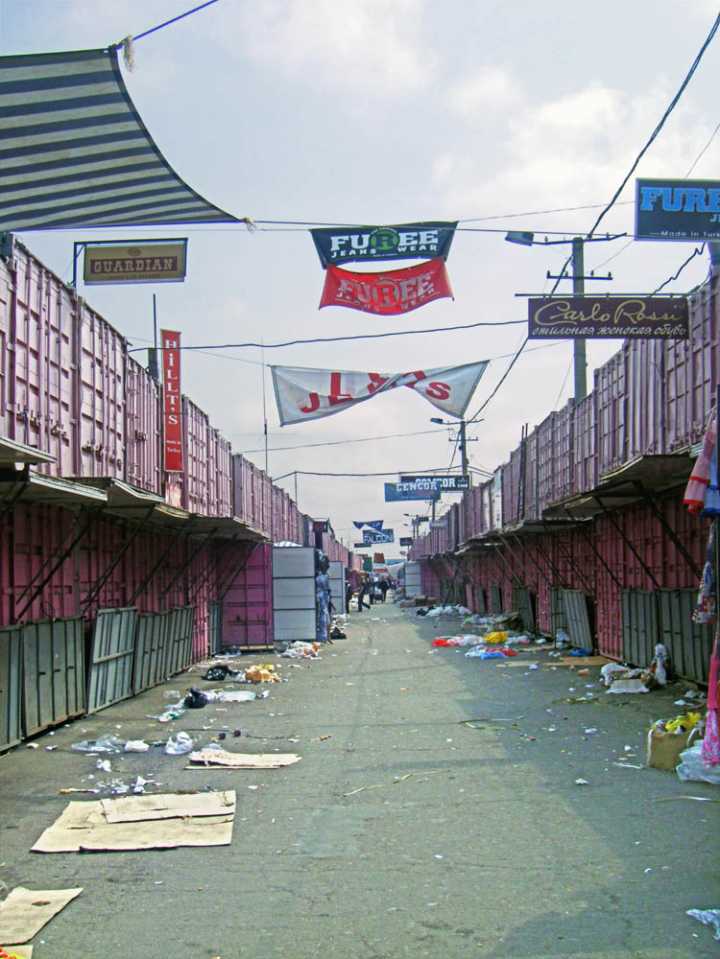
Right: The 7th km: Pink street after closing time.
The 7th km: night-time wholesale trade.
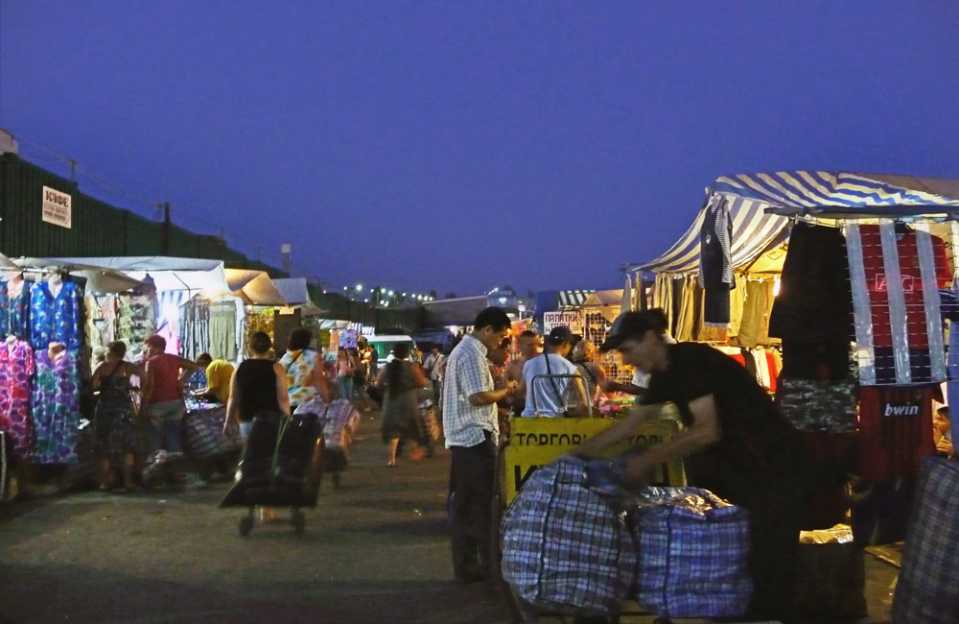
A Turkish trader selling Turkish leather goods.
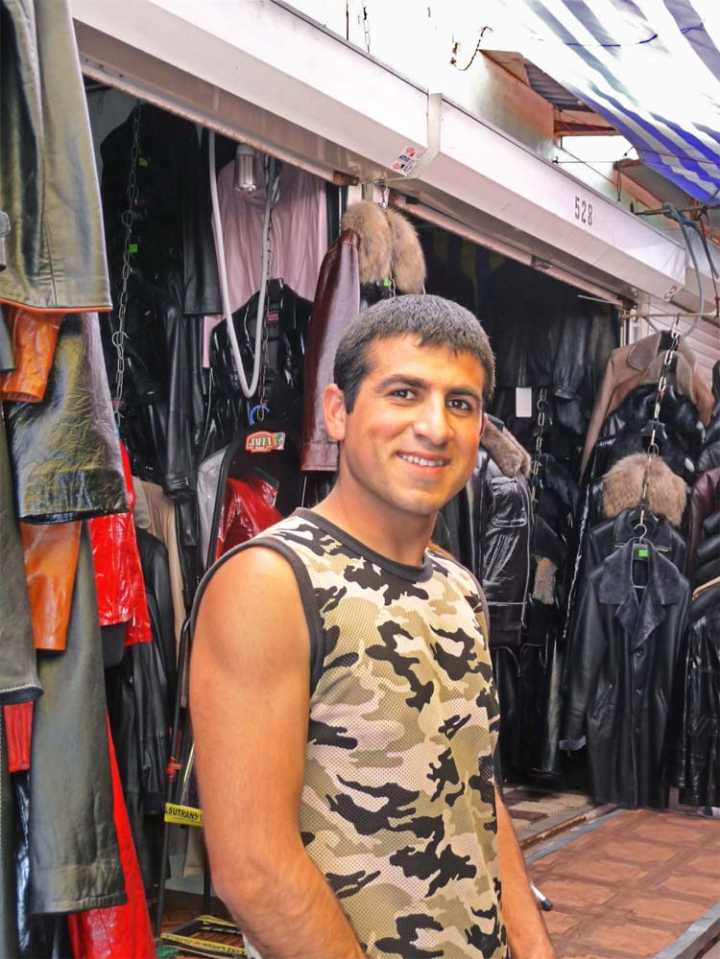
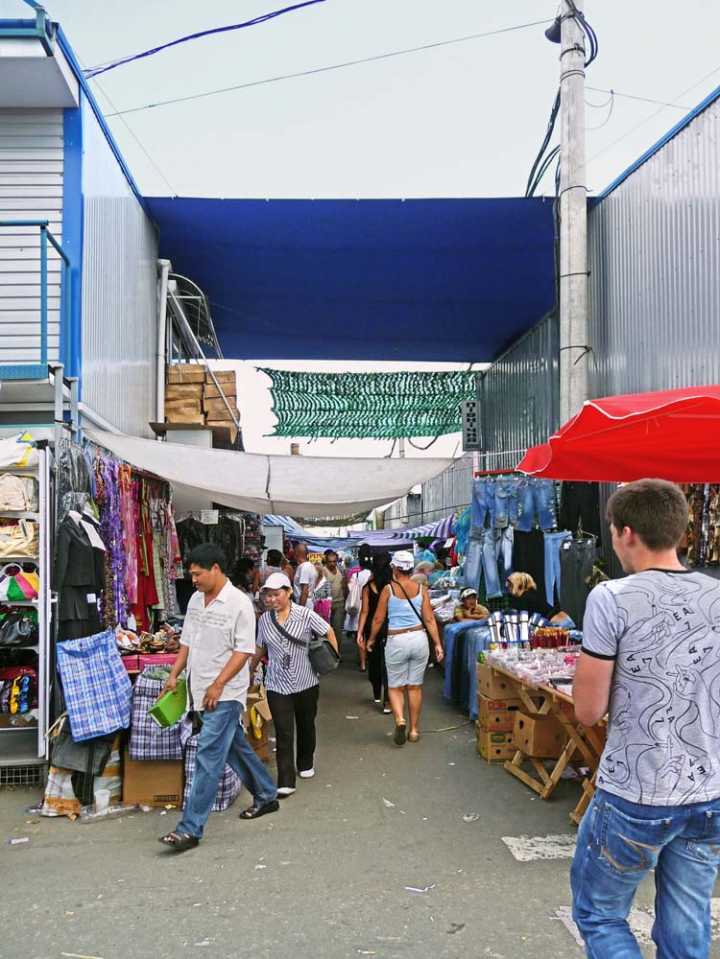
Right: A Vietnamese money changers' corner.
Sociality on the market: a shared meal after work.
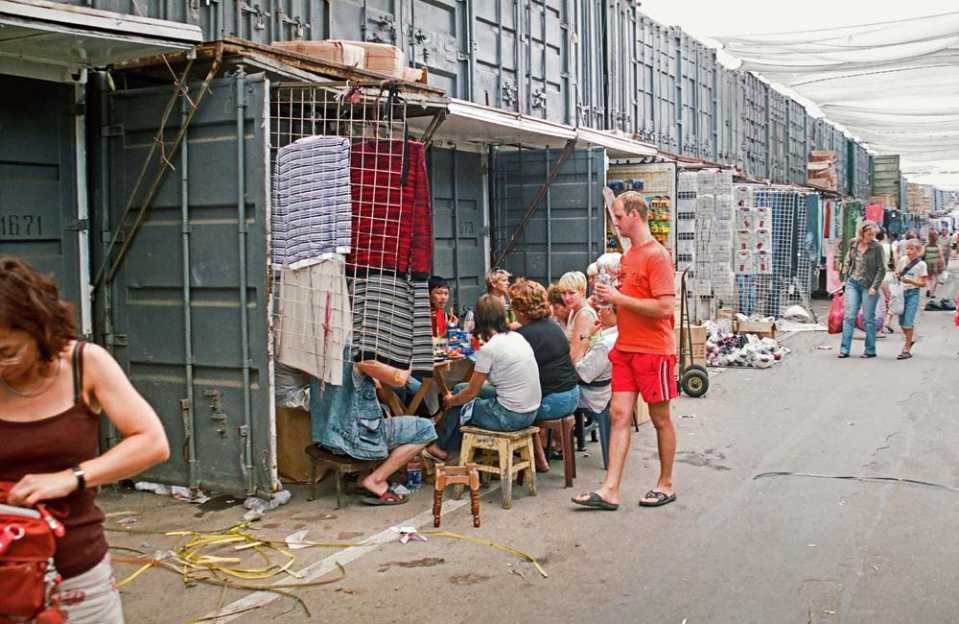
There are ethnic neighbourhoods and enclaves at Sedmoi. This happens because each type of commodity is allocated its own trading streets, and trade in these commodities has become the preserve of particular nationalities (giving the market a bazaar-like quality). Thus, Ukrainians, Bulgarians and Russians sell cleaning items (washing powder, soap, pails, dishcloths, etc.) as well as perfumery and cosmetics; Chinese sells jeans; Turks specialise in leather clothing; Africans sell trainers; Afghans trade in footwear and electrical goods, and so on. The money-changers are Vietnamese –discreetly giving the appearance of ‘someone just waiting’, they lurk in the alleyways.
With no need for a container, they move at cross-roads, jostled by food vendors pushing their home-made carts and yelling their multi-cultural wares – hot coffee, roasted peanuts, vareniki, hachipuri, lavash, lyulya kebab, etc. (1). Now that the ethnic division of labour has stabilised, their physical appearance (“Vietnamese”) is enough to identify who will change money. The co-responsibility of any Vietnamese for any such monetary transaction guarantees that customers will get a ‘fair’ exchange rate (Prigarin 2007n.d.). Some changes in ethnic enclaves on the market have also taken place over time: if in the 1990s, Turks were the main sellers of leather goods from Turkey, this trade has been partially overtaken by locals, while many successful Turkish traders moved into new businesses in the city proper. Money made on the 7th km is said to have financed some popular Turkish restaurants and night clubs in Odessa.
The important point is that all non-local traders of non-Slav appearance are liable to racist attacks in the city. Several Vietnamese currency changers are rumoured to have been murdered on their way to and from the market. The locals have a repertoire of insulting terms: ‘Negry’ (from Africa), ‘Cherniye (Blacks, i.e. Indians, Afghans, Gypsies, and from the Caucasus), ‘Churki’ (from Central Asia), ‘Zverki’ (‘little animals’, small groups of foreign-appearing people). The expression ‘Non-Russian’ (Ne Russkii) has become a joking term of abuse for anyone who seems different, not one of us, and it is used by all kinds of Russian-speaking people, even Arabs. In other words, ‘we’ are Russians by default (2). In this environment, ‘Blacks’ like the Afghans are especially vulnerable to attacks. The Afghan traders mostly rent apartments in Odessa rather than sleep at the market. But they only travel to and from the city in small convoys for safety. Their social life in the city is mainly with one another, but on the market various non-Afghani traders are friends. For many local Russian and Ukrainian traders, the 7th km is the only place where close repeated contacts with ‘Non-Russians’, e.g. Chinese, Arabs, Afghanis, are feasible and acceptable.
read more...
read more...
read more...
read more...
read more...
read more...
read more...
read more...
read more...
read more...
read more...
read more...
read more...
read more...